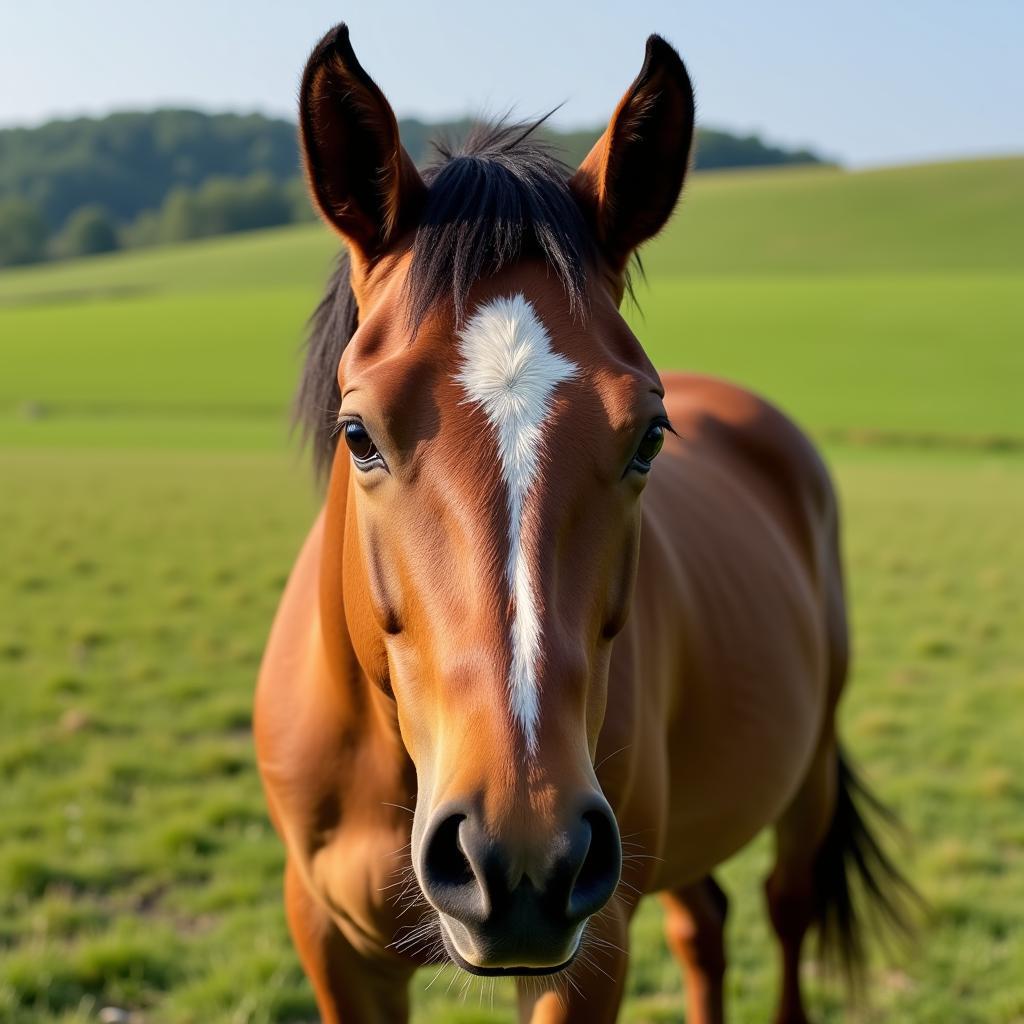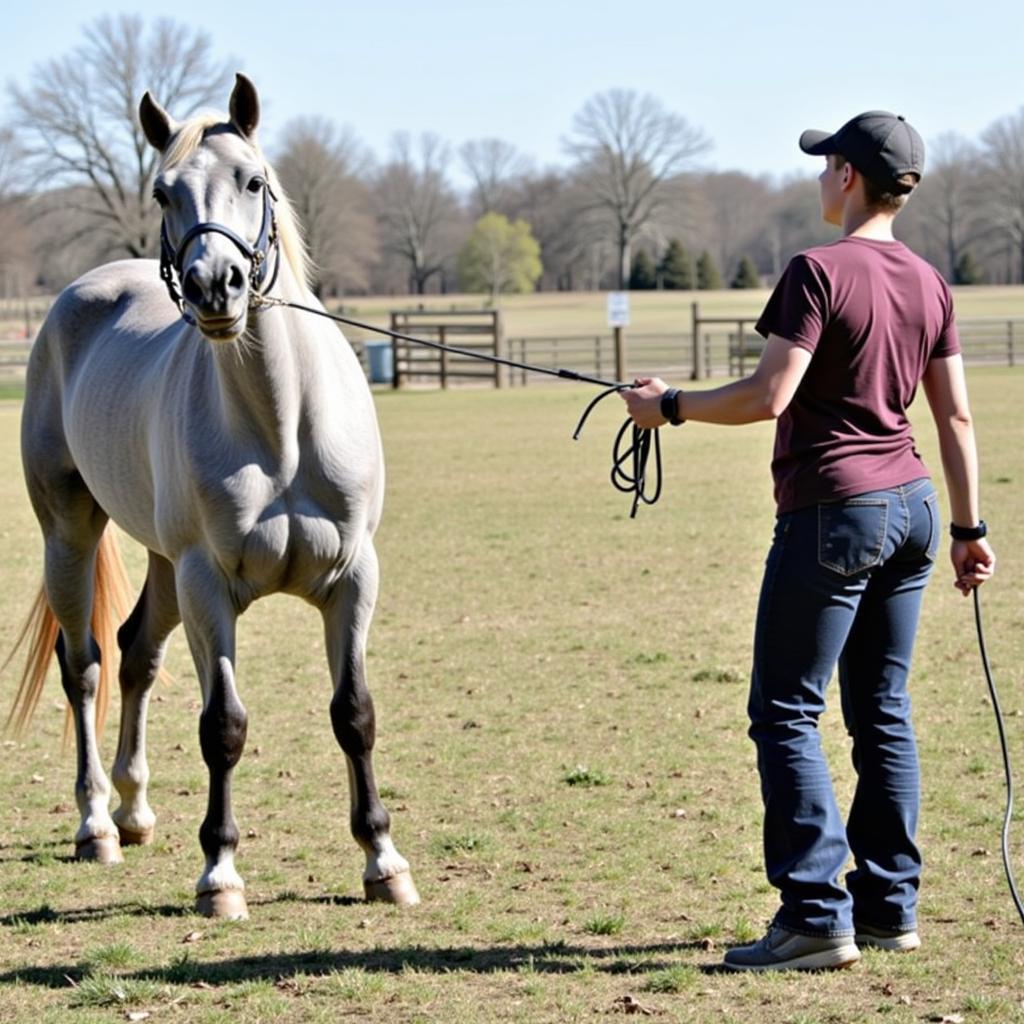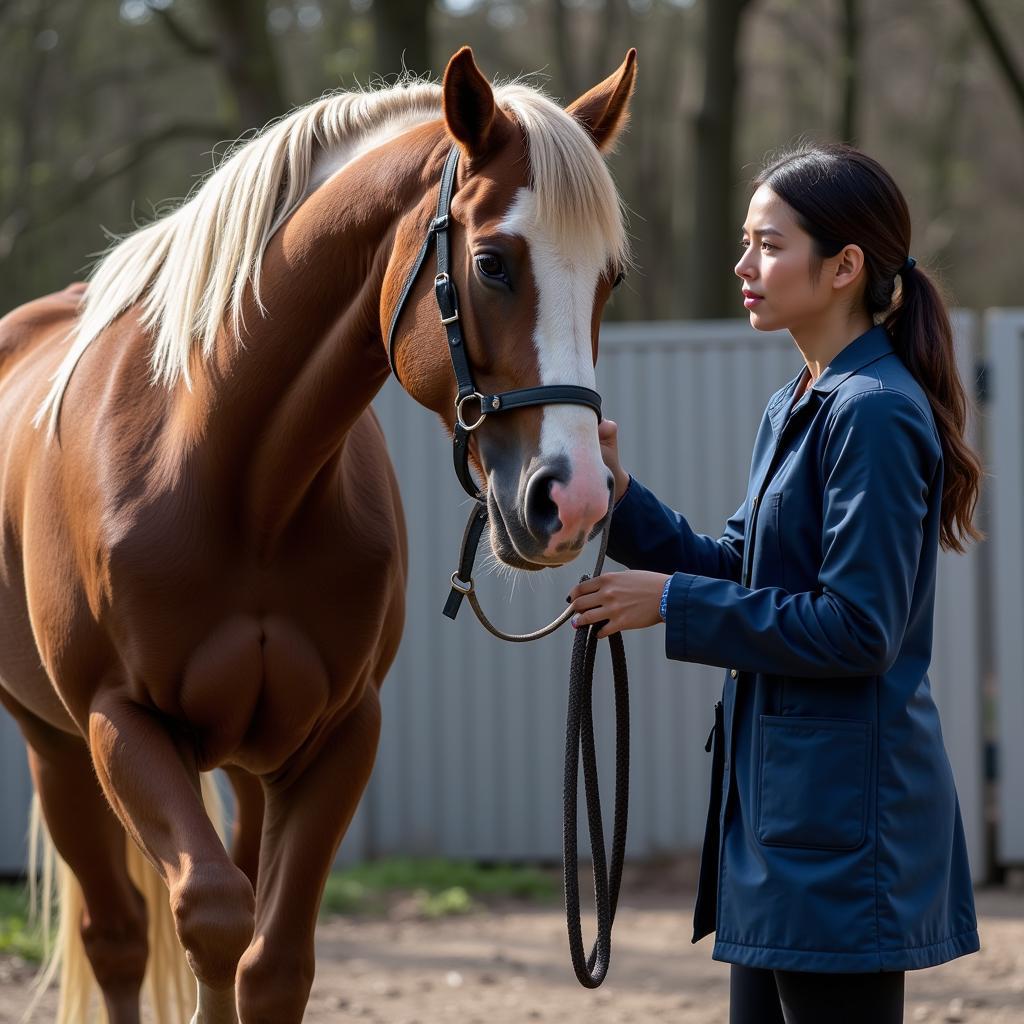“Horse Quiet” is a term that resonates deeply with anyone who has spent time around these majestic creatures. It speaks to a state of calmness, a gentle presence, and a deep connection between horse and human. But what does it truly mean to have a “quiet” horse, and how can we cultivate this peaceful partnership?
This article will delve into the intricacies of horse behavior, exploring the factors that contribute to a quiet demeanor and providing practical guidance on fostering a harmonious relationship with your equine companion.
The Essence of a Quiet Horse
A quiet horse is not simply one that stands still; it’s a horse that exudes a sense of inner peace and confidence. They are relaxed yet attentive, responsive to cues yet not easily spooked. This calmness is a reflection of their temperament, training, and the bond they share with their handler.
 Horse Quietly Grazing in Pasture
Horse Quietly Grazing in Pasture
Factors Influencing Horse Temperament
Just like humans, horses have unique personalities. Some breeds are naturally more laid-back, while others might be more spirited. Understanding your horse’s breed tendencies can offer valuable insights into their inherent temperament. However, it’s crucial to remember that each horse is an individual, and their environment and experiences play a significant role in shaping their behavior.
The Role of Training and Handling
Consistent, positive training is paramount in developing a quiet horse. Horses thrive on routine and clear communication. By establishing yourself as a calm and confident leader, you can instill a sense of security in your horse.
 Horse and Handler Engaging in Groundwork
Horse and Handler Engaging in Groundwork
Recognizing and Addressing Stressors
Horses communicate primarily through body language. Recognizing subtle signs of stress or anxiety is vital in maintaining their calmness. Are their ears pinned back? Are they pawing the ground or swishing their tail excessively? Identifying these signals allows you to address the underlying cause before it escalates into a behavioral issue.
Building a Bond of Trust
A deep bond of trust forms the foundation of a quiet partnership. Spending quality time with your horse, engaging in activities they enjoy, and providing consistent care are essential for strengthening this connection. Remember, horses are highly social animals and crave companionship.
Maintaining a Peaceful Environment
The environment plays a crucial role in influencing a horse’s demeanor. A calm and predictable stable environment, ample turnout time with other horses, and a balanced diet contribute to their overall well-being and promote a sense of quietude.
When to Seek Professional Help
If you’re struggling to achieve “horse quiet” with your equine partner, don’t hesitate to seek professional help. A qualified equine behaviorist or trainer can assess the situation, identify any underlying issues, and provide tailored guidance to help you and your horse achieve a harmonious relationship.
 Veterinarian Examining a Horse's Leg
Veterinarian Examining a Horse's Leg
Conclusion
Achieving “horse quiet” is a journey of understanding, patience, and dedication. By focusing on clear communication, consistent training, and building a strong bond of trust, you can create a peaceful partnership with your equine companion. Remember, a quiet horse is not a submissive horse; it’s a horse that moves with confidence and grace, reflecting the harmony it shares with its human counterpart.
If you’re looking for resources to enhance your horsemanship journey, be sure to check out our articles on horse hair flogger, eye injury horse, and horse coloring book.
For additional support and expert advice, reach out to our dedicated team at Justus Horses USA. Contact us at 0772127271, email us at [email protected], or visit our location at QGM2+WX2, Vị Trung, Vị Thuỷ, Hậu Giang, Việt Nam. We are available 24/7 to assist you with all your equine needs.